- Home
- Keith Douglass
Hellfire c-20 Page 6
Hellfire c-20 Read online
Page 6
2215 local (GMT-9)
Captain Gaspert stared at the ships in the distance. The Russians were just dark blots on the horizon. The American ships were farther away and he could just make out a few running lights. Still, the computer gave a clear record of their track. They were heading away, and Montego Bay would be well clear of them even if they reversed course right now.
But there was something about the geometry that made him uneasy. He couldn’t pinpoint it exactly, hard as he tried. Perhaps it was the instinctive reaction to being the burdened vessel in any encounter with ships in military operations. Normally, the Montego Bay would be the privileged vehicle, the ship entitled to right-of-way should there be any conflict between her course and that of another vessel.
But the Russians were conducting flight operations and had to maintain a particular angle into the wind in order to launch and recover safely. That made the Admiral Kurashov the privileged vehicle, and Montego Bay the burdened vehicle ship.
Why am I even thinking there’s a situation? We’re opening, not closing. There is no reason to be concerned.
Still, he stayed on the bridge, watching the Russian ship as daylight faded. An hour after dark, he instructed the officer of the day to change course by fifteen degrees, increasing the distance between the Russian ship and Montego Bay. Again, he had no real reason to do this, but somehow the added margin of safety made him feel slightly better.
Gaspert watched the screen as the distance between his ship and the Russians increased. He should be feeling much better, but he wasn’t.
Admiral Kurashov
2216 local (GMT-9)
General Gorshenko reached Combat just a few steps behind Captain Bolshovick. Any question the general had about whether or not the general alarm was a drill was answered the moment he looked at the captain’s face. The navy captain’s normal expression of supreme confidence was gone.
Mistake, that. They should never see you show concern or alarm.
“Captain!” The young lieutenant’s voice was sharp. “A fire control radar has been detected. We are being targeted, sir!”
“What radar? From which platform?” the captain asked.
“The SPS-48 from the carrier, sir. In targeting mode for only a brief moment, but definitely a fire control radar locked on.”
“And now?”
“Normal search mode, sir.”
“That is exactly how they would fire a Harpoon,” the captain snapped. “A brief flash for targeting data, then launch the weapon. The missile has its own seeker head, complete with re-attack circuitry, and would need no further guidance.” Bolshovick paused for a moment as though considering his options.
Gorshenko swore quietly. “And nothing further? Just one radar sweep, no more? No additional aircraft in the air, no signs of targeting or manuevering?”
“None of that, General,” the lieutenant answered, steadying visibly in response to the general’s calm, no-nonsense tone.
“Irrelevant,” the navy captain said, clearly annoyed at the general’s interference. “Weapons officer, weapons release authority. One round, targeting the carrier.”
Before Bolshovich could foul things up further with his infernal grandstanding, Gorshenko reached his decision. “No.” His voice carried the unconscious assumption that he would be obeyed. The lieutenant froze. “There is no evidence they are attacking.”
“Captain?” the lieutenant asked. Gorshenko could hear the uncertainty in his voice, and it was reflected in the faces of the rest of the men in Combat. The warrant officers and petty officers stared at the captain, aghast.
“If I wait until the missile is visible to our radar, it will be too late,” the captain said.
“They are not attacking,” the general said. “You, weapons person — do not fire.”
“We destroyed their satellite! Of course they are attacking!”
The lieutenant held his finger still poised over the button. He kept his gaze locked on his captain, ignoring the general except for the fact he had not yet fired. It was clear that if the captain so much as nodded, he would depress the button.
The damned fool. The Americans are not attacking, not unless something has gone terribly wrong. If Bolshovich only knew — no, I cannot tell him. He would not believe me now.
“There is much you do not know,” Gorshenko said, crossing the compartment in a few steps to stand beside the lieutenant’s console. “Captain, you must not shoot. I forbid it.”
“I am in command here,” the captain snapped, moving to Rotenyo’s other side. “Lieutenant, you will obey my orders.”
Gorshenko saw in the lieutenant’s face that the young officer had reached a decision. Before Rotenyo’s finger could twitch, the general slammed into him, smashing him out of the chair. By reflex, Rotenyo’s finger jabbed down at the fire control button, even as the general’s palm slapped down on the console keyboard in an effort to abort the attack.
When the laser had fired, there had been no indication inside the ship of its operation — no warning buzzer, no vibration, no sound, nothing. With the anti-ship missile, however, it was different. All personnel had been recalled inside the skin of the ship for the laser exercise and for general quarters. The entire forward part of the ship rumbled, and exhaust from the rocket billowed from the launch canister, sweeping across the deck. The rumble built for two seconds, then white fire ignited inside the cloud. The missile emerged from the fire, a thin, white pole, and seemed to hang in the air for a few moments, before it shot off toward the horizon.
USS Lake Champlain
2216 local (GMT-9)
On board the cruiser, Lieutenant Commander Alan Simms, the tactical action officer, or TAO, was double-checking a closest-point-of-approach solution showing his ship would pass well aft of the Montego Bay. He’d had the operations specialists work out the solution manually as well, figuring any opportunity for real live training shouldn’t be missed. All in all, it was a quiet night watch, and Simms figured they’d have plenty of time to work out the final preparations for the Kernel Blitz evolutions scheduled for the next day.
All that changed in an instant. As TAO, Simms had weapons release authority and full responsibility for protecting the ship when the captain was not in Combat. With the ships so close together there was no time to think, no time to call the captain or ask for a second opinion. The reflexes implanted by hours of training and countless drills kicked in.
At the very moment that Gorshenko was first realizing what Bolshovich had done, Simms flipped his fire control key to the launch position and sounded general quarters. As Gorshenko attempted to abort the launch, Simms ordered weapons free, and the chief manning the weapons console manually designated the launch cell from the vertical launch system. By the time the Russian general knocked the sailor out of his chair, the Lake Champlain had fired two anti-air missiles at the Russian missile already in the air. Once clear of the ship, the Champlain’s missiles locked on to the Russian missile and began boring in on it.
Admiral Kurashov
2217 local (GMT-9)
“You fool,” Gorshenko raged. “I did not authorize you to fire. Abort the missile — do it now!”
“You are the fool,” the captain responded. “I’m authorized to take such action to preserve the safety of the ship, even if you are in tactical command.”
“Captain!” Rotenyo stared at the screen in horror. “Sir, the missile is off course!”
Both the captain and the general spun around to check the large screen in the front of the compartment. The symbol for the missile, which had been inching toward the carrier, had changed direction. As they watched, the symbol for a hostile missile launch appeared next to the American cruiser, the arrowhead of the speed leader aimed directly for the Kurashov.
“You’re responsible for that,” the captain said, his voice soft and menacing. “When you hit the keyboard, you disrupted the programmed launch order. God knows where it’s going — and what it will hit.”
On the screen, the Russian missile changed course again. The American missile changed course also, tracking it. As they both veered north, Gorshenko saw that their trajectories put them directly overhead the SS Montego Bay.
Gorshenko stared at the screen in horror, his mind in turmoil. What had he done? What had he done?
FOUR
SS Montego Bay
2215 local (GMT-9)
Most of the passengers were on the main deck or weatherdecks. A good portion had exercised their option of eating at the casual grill on the fantail, and even more lounged around the small jewel of a pool with hamburgers, club sandwiches, and a large selection of alcoholic beverages. Many of the passengers had been drinking steadily all day. On each cruise there were a couple of people who could not decide when it was time to quit.
John and Erica Cabot were on their second honeymoon, hoping desperately to patch up their differences. Erica, whose tolerance for alcohol was significantly lower than John’s, was not in a mood to try particularly hard.
“We should have gone to the dining room,” she said for the seventh time. “I like the people at our table. That’s why you don’t want to go, isn’t it? I was having too much fun.”
“That’s not it at all, as I told you. I just thought that since it’s such a nice night, we might—”
“Sit by the pool and watch half-naked women?” Erica sneered. “Well, two can play that game.” She bounced away to the other side of the pool, sat down on an empty deck seat in the middle of three men, and started talking to them.
John started after her, and stopped. What was the use? She was right. What would it have hurt for him to go along with the dining room routine? Just because he didn’t like dressing up didn’t mean he shouldn’t compromise from time to time.
Emboldened by the alcohol, he rounded the pool and sat down on Erica’s chair. The three men who had been chatting with her immediately backed off. Erica shot him a scornful look.
“You’re right,” he said rapidly, trying to get it all out before he changed his mind. “It was selfish of me to insist on coming to the pool. Come on, if we hurry, we can get dressed and still make it for dessert.”
Amazement followed by love dashed across her face. “Thank you,” she said. “Oh, John, thank you.”
She left her hamburger sitting on the table as she rose to join him. Hand in hand, hips and elbows touching, they walked back into the interior ship and headed forward toward their cabin.
SS Montego Bay
Bridge
2216 local (GMT-9)
Suddenly, off to the right of the screen, a new contact popped up. Ten miles away, but it had come up so suddenly that it had to be an extremely tiny contact. Perhaps a cabin cruiser, or one of the foolish small boats that regularly made the trip between California and Hawaii. On more than one occasion, Gaspert had had to slow to provide assistance to them in the form of fresh water, fuel, or simply sailing directions to Hawaii.
“What is—” Gaspert started to ask, intending to have the officer of the deck raise the new contact on the radio. But before he could finish the sentence, the contact jumped across the screen, closing the distance from Montego Bay to half of what it had been a second earlier.
“Montego Bay, this is Jefferson!” The voice from the carrier cut through the static on the ship-to-ship radar.
“Roger, Jefferson, what the—shit!” The truth took a few seconds to sink in. His first thought was that there had been a radar malfunction, and a picture had simply corrected itself. If that was the case, the contact was within five miles of the cruise ship and it was even more critical that they keep a close eye on her.
Then the forward lookout began howling. “Contact, bearing zero four five relative, position angle three — Captain, it’s a missile!”
“General alarm,” Gaspert snapped, ordering the civilian equivalent of general quarters. A gong began sounding immediately, and a recorded voice directed all passengers to return to their staterooms. Gaspert ran to the bridge wing, as though there were some way he could ward it off by his mere presence there. He could see it now, too, without the binoculars. It looked like a white sliver against the field of stars now emerging in the sky. But it was a deadly splinter, a contrail marking its course through the air. It was homing in on Montego Bay, closing the distance every microsecond.
This can’t be happening. Not with four hundred and twenty-seven passengers on board.
Unlike her military counterparts, the Montego Bay was not built with watertight integrity throughout the ship. Certainly, her hull kept the ocean at bay, and there were a few watertight doors between decks. But she was riddled with elevator shafts, passageways, and large areas of space divided by only the flimsiest bulkheads. She was not designed to take much damage and keep floating.
“Montego Bay, this is Jefferson!”
Gaspert keyed the mike as he shouted out damage control and maneuvering commands.
USS Jefferson
2216 local (GMT-9)
Coyote slouched in the elevated chair in the center of the compartment. His truncated sleeping hours were starting to catch up with him. “Any coffee left, Chief?” he asked the senior mess management specialist, who had come into TFCC to see when the admiral wanted to eat.
“Yes, sir. And what will you…?” A startled yelp from Commander Hanson, the flag TAO, stopped him.
“Vampires inbound!” The TAO’s voice cut through the activity immediately.
“What the bloody hell?” Coyote said. The hard gong of general quarters began sounding throughout the ship.
“Missile launch, from the Russian ship,” Hanson said. “It’s headed our way, Admiral.” Without pausing, he began conferring with the officer of the deck, ordering last-minute maneuvers that would probably be futile.
“Set EMCON Echo! Nothing radiating, nothing. Now!” Coyote could already hear the odd patches of silence as sensor operators began shutting down their gear. The constant background noise was noticeable only in its absence.
If the missile was targeting one of the rich sources of electromagnetic energy radiating from the carrier, shutting down all the radars and sensors could make it go stupid. There was nothing more really to do at this point, but Coyote could not bring himself to sit in his chair and simply watch. He paced behind Hanson and the watch officer, itching to give an order, any order. But it wasn’t necessary.
As he watched, the speed leader pointed directly at the carrier. It inched forward steadily. The computer evaluated the continuous radar hits, and then corrected the display. The speed leader was now pointed away from the carrier at a sixty-degree angle, and at a new target.
“Jefferson, Lake Champlain TAO. Snapshot procedure — two birds launched. Be advised we are standing by to launch additional rounds.” The TAO’s voice shivered slightly, as though the speaker had just realized what he’d done.
“Dear Lord,” Hanson breathed. He grabbed the marine radio mike and said, “Montego Bay, this is Jefferson. Do you copy?”
The ship-to-ship circuit was a babble of shouted commands and answers from the cruise liner. The mike was keyed, but no one answered the carrier’s call-up.
Just then, the speed leaders from the American missile intercepted the speed leaders from the Russian missile, directly over the symbol marking Montego Bay’s location. The circuit went dead.
FIVE
SS Montego Bay
2219 local (GMT-9)
On the fantail, one of the men Erica had been flirting with muttered, “Bitch.” He turned to stare out at the sea. A flash of light caught his attention. He perked up immediately. “Hey, fireworks!” He had just tapped his buddy on the shoulder to get him to turn around when the first missile struck.
After flashing through the air at almost impossible speeds, it penetrated the skin of the ship just above the waterline. From there, it continued through the ship for twenty feet before the delayed fuse detonated the warhead. This particular fuse was guaranteed to ensure the missile exploded deep i
nside a ship where it could create the most damage rather than simply piercing the outer compartments.
The compartment it finally entered was the main engineering space. This compartment housed the four boilers that were connected to steam turbines, as well as the reduction gear and the beginning of the propeller shaft.
Three engineers were in the compartment, although the normal watch required only one. One was working on a bilge pump, garnering some overtime. The man on watch was monitoring the gauges and dials that spelled out every detail of the ship’s engineering plant. A third was studying his emergency procedures book in preparation for the next Coast Guard classification exam.
They had just a split second to hear the soul-shattering noise of metal crumpling and twisting before the warhead detonated. The engineer on watch stood, and had taken one step toward his console when the warheads detonated.
Four point five kilograms of heavy explosive converted the metal immediately around it into molten fluid and shrapnel, and catapulted those droplets in all directions at once. They ripped through everything in their path, piercing more metal, until one shard punctured a fuel line.
The body of the missile continued on through the compartment, shoving the rest of the flaming debris in front of it. The remaining propulsion fuel in the weapon’s main body was ignited by a fireball, and contributed to the devastation.
The men in the compartment were flashed into charred corpses. They never knew that something had gone very, very wrong.
Although the engine compartment itself was surrounded by watertight compartments, it was not designed to withstand this assault. Additionally, none of the damage control hatches had been secured. The expanding ball of fire and hot gasses blew them off their hinges, and superheated steam, burning fuel, and fire poured to the upper decks, consuming everything in their path.
The explosion rocked the ship, not hard enough to throw people off their feet but enough to alert them that something was seriously wrong. Immediately, alarms began screaming at every console. The propeller shaft, no longer attached to the rest to the ship, with both of its shock-mounted seals breached, careened through the aft section of the ship. The drag of the water on the propeller began pulling it out of the ship, and it broke the watertight seals, allowing seawater to pour into the ship.

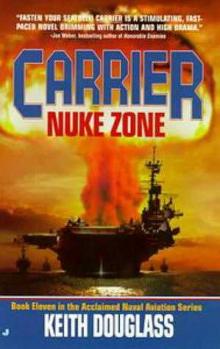 Nuke Zone c-11
Nuke Zone c-11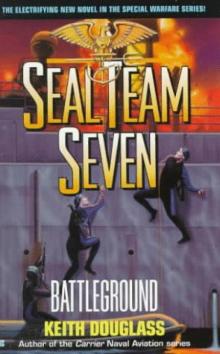 Seal Team Seven 6 - Battleground
Seal Team Seven 6 - Battleground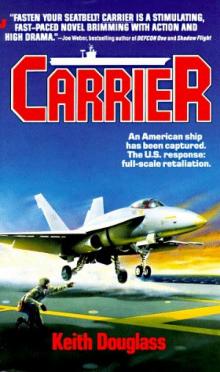 Carrier c-1
Carrier c-1 Island Warriors c-18
Island Warriors c-18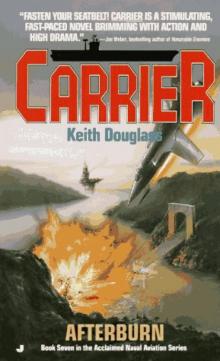 Afterburn c-7
Afterburn c-7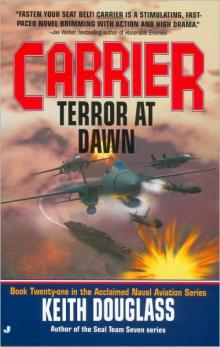 Terror At Dawn c-21
Terror At Dawn c-21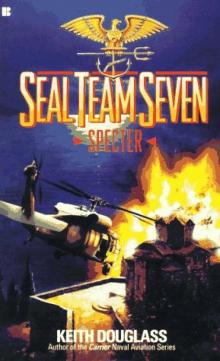 Specter sts-2
Specter sts-2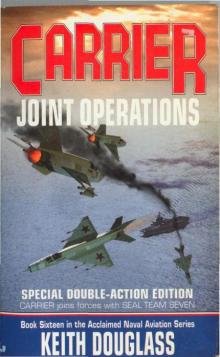 Joint Operations c-16
Joint Operations c-16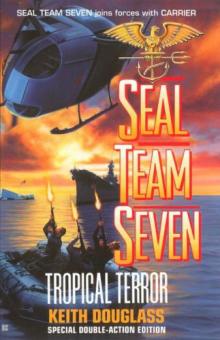 Tropical Terror sts-12
Tropical Terror sts-12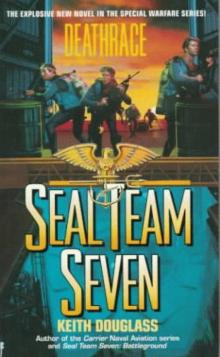 Seal Team Seven 7 - Deathrace
Seal Team Seven 7 - Deathrace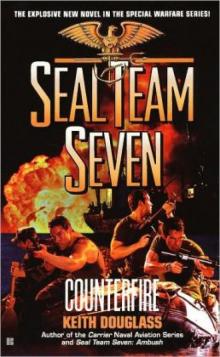 Counterfire sts-16
Counterfire sts-16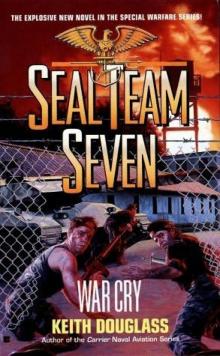 War Cry sts-9
War Cry sts-9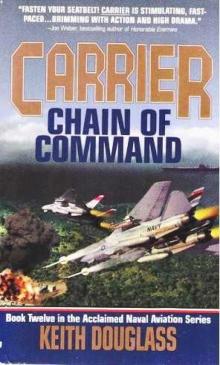 Chain of Command c-12
Chain of Command c-12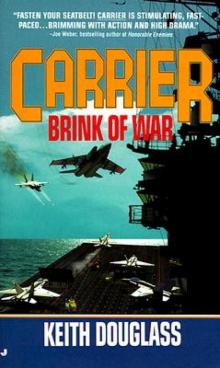 Brink of War c-13
Brink of War c-13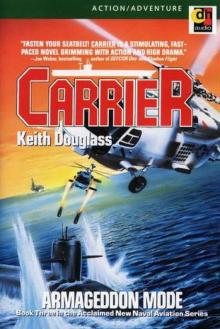 Armageddon Mode c-3
Armageddon Mode c-3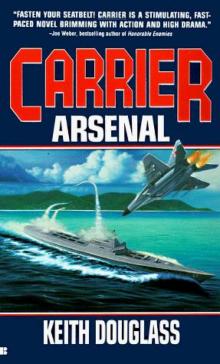 Arsenal c-10
Arsenal c-10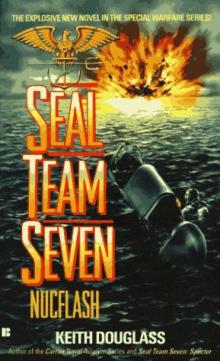 Nucflash sts-3
Nucflash sts-3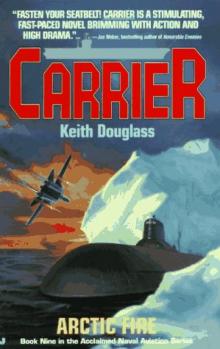 Arctic Fire c-9
Arctic Fire c-9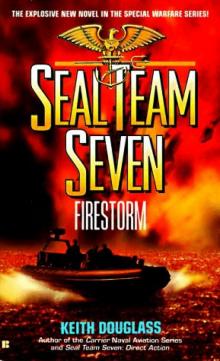 Firestorm sts-5
Firestorm sts-5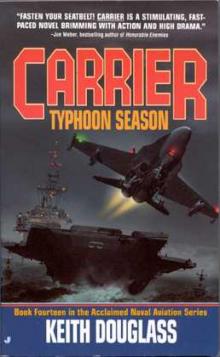 Typhoon Season c-14
Typhoon Season c-14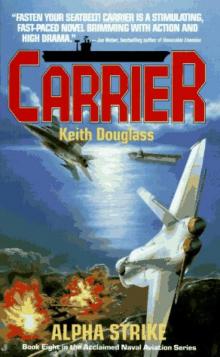 Alpha Strike c-8
Alpha Strike c-8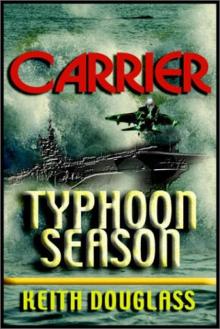 Carrier 14 - TYPHOON SEASON
Carrier 14 - TYPHOON SEASON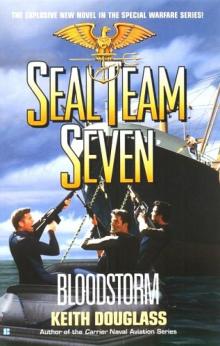 Bloodstorm sts-13
Bloodstorm sts-13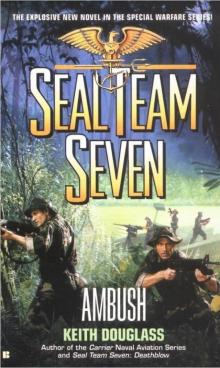 Ambush sts-15
Ambush sts-15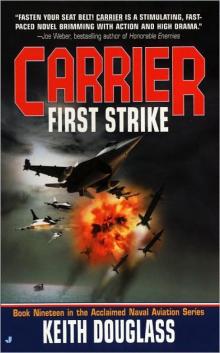 First Strike c-19
First Strike c-19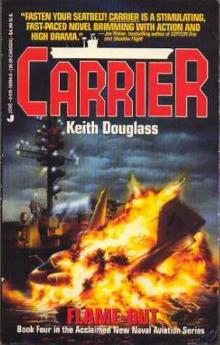 Flame Out c-4
Flame Out c-4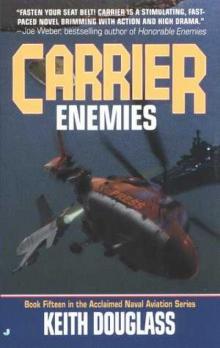 Enemies c-15
Enemies c-15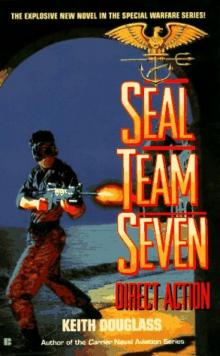 Seal Team Seven 04 - Direct Action
Seal Team Seven 04 - Direct Action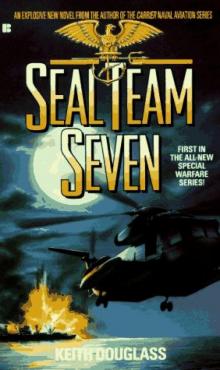 Seal Team Seven 01 - Seal Team Seven
Seal Team Seven 01 - Seal Team Seven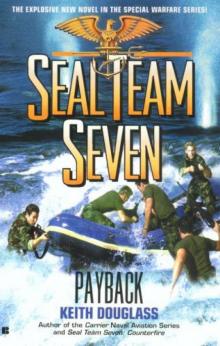 Payback sts-17
Payback sts-17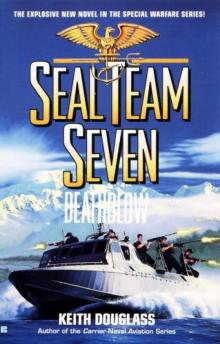 Death Blow sts-14
Death Blow sts-14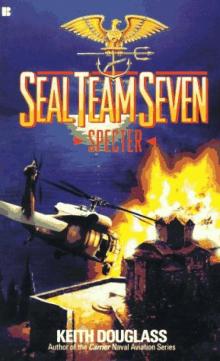 Seal Team Seven 02 - Spector
Seal Team Seven 02 - Spector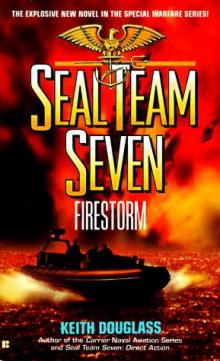 Seal Team Seven 5 - Firestorm
Seal Team Seven 5 - Firestorm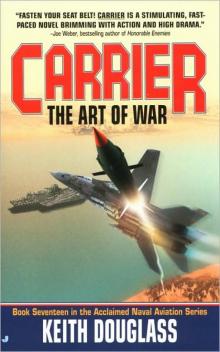 The Art of War c-17
The Art of War c-17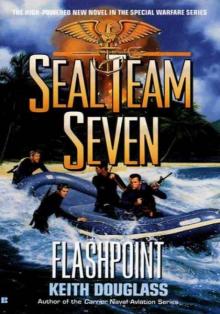 Flashpoint sts-11
Flashpoint sts-11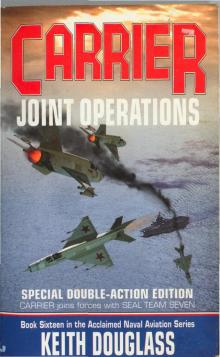 Carrier - Joint Operation Book 16
Carrier - Joint Operation Book 16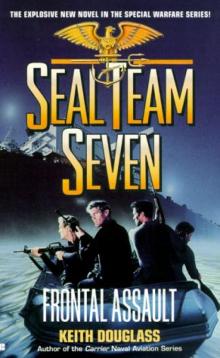 Frontal Assault sts-10
Frontal Assault sts-10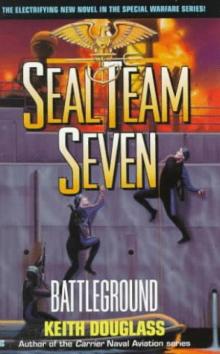 Battleground sts-6
Battleground sts-6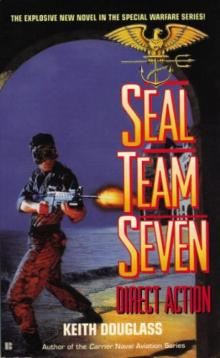 Direct Action sts-4
Direct Action sts-4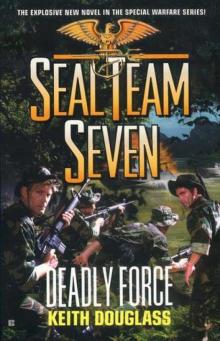 Deadly Force sts-18
Deadly Force sts-18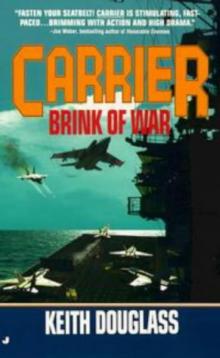 Carrier 13 - Brink of War
Carrier 13 - Brink of War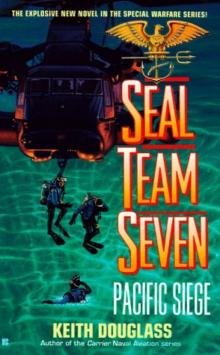 Pacific Siege sts-8
Pacific Siege sts-8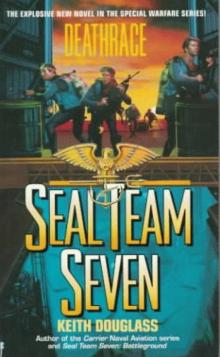 Deathrace sts-7
Deathrace sts-7